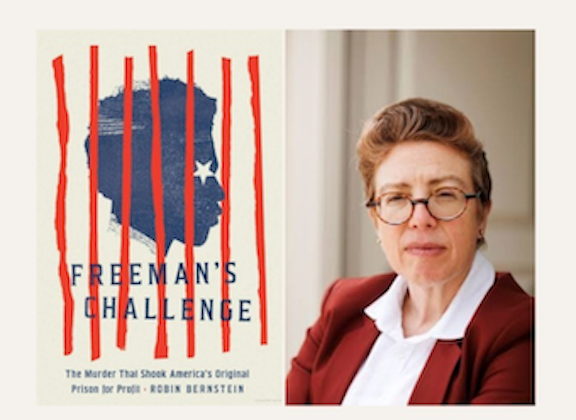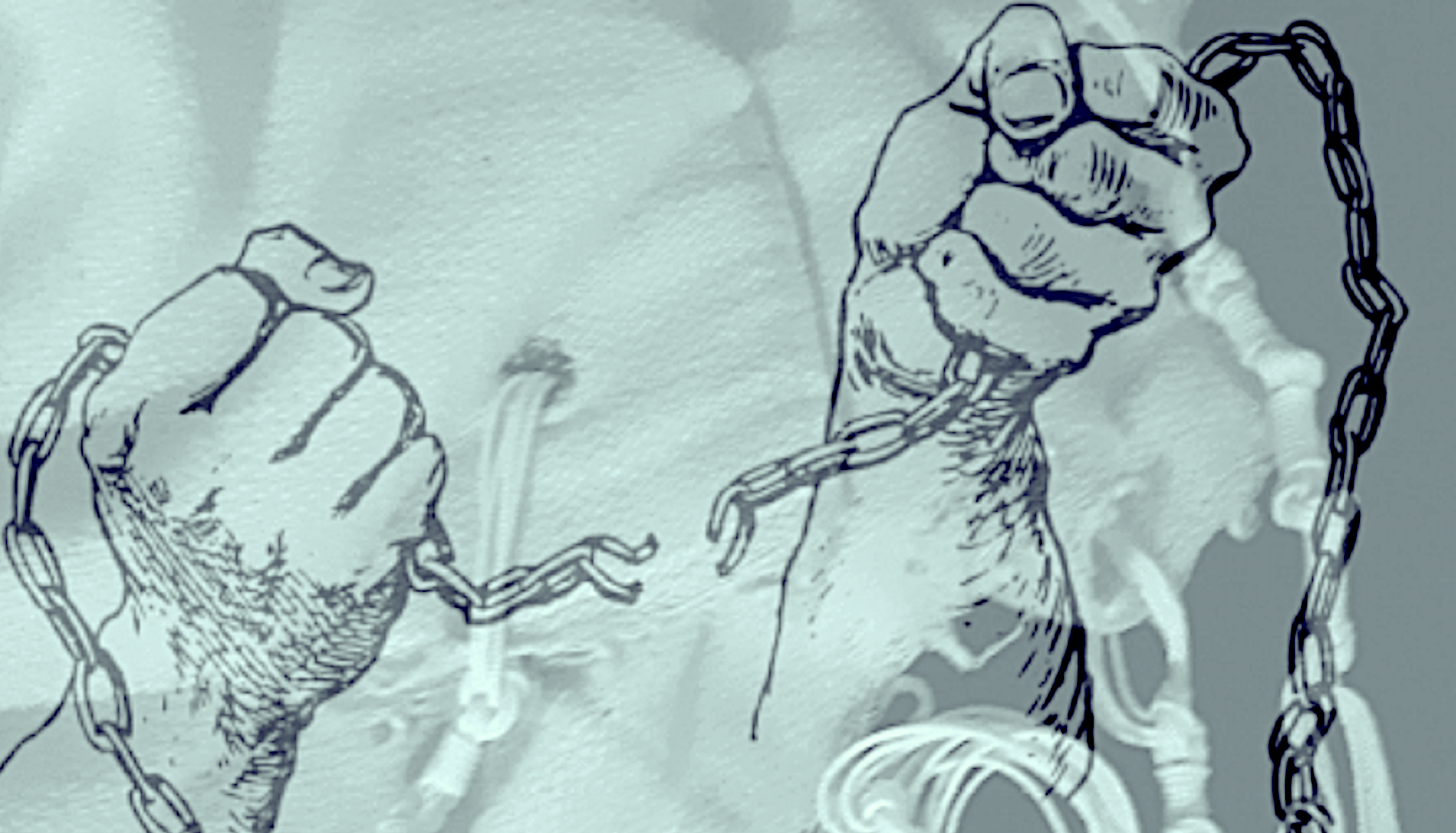On September 25, 2024 Professor Robin Bernstein joined Matir Asurim to explore connections between her new book, Freeman’s Challenge: The Murder that Shook America’s Original Prison for Profit; themes of teshuvah, repair and return; and the work of Matir Asurim.
The discussion centered around the Auburn Prison system, a system of incarceration for profit tied very closely to the economy and identify of people around it; prison systems in the US North and South, before and after the Civil War; and the particular story of William Freeman. Professor Bernsein noted the lack of focus on rehabilitation in the Auburn system, as well as the role of prison reform campaigns in perpetuating a system that relies on torture to function. Conversation also touched on portrayals of William Freeman in popular culture of the time and later; how his story was used politically during his lifetime; and current efforts to abolish prison labor for profit.
Full video and audio recording of book talk, plus complete transcript, now available, with gratitude to Professor Bernstein for her generous sharing with Matir Asruim.
Some Crucial Quotations
“The problem with starting the story [or incarceration in the US] in the middle is that we let the North off the hook. What I wanted to do in Freeman’s Challenge is put the North back on the hook. In fact, the Southern practices of convict leasing were adapted from the North….So I wanted to tell this story and put the North back on the hook, and I wanted to tell it in a way that would be unforgettable. So the way I decided to tell the story was through one individual, and this is the one individual, his name is William Freeman, and William Freeman was born in Auburn.”
“And so when Freeman was challenging the system of profit-driven incarceration, he was actually threatening the entire city. And by this point in 1845, the entire state was, in certain ways, dependent on this prison, and I can talk about how that was the case. So he was threatening, first of all, this massive prison that we’re seeing before us. He was threatening the entire city. He was threatening the state. So this was a very powerful challenge that he issued.”
“And this book is really ultimately about capitalism. So, there were a lot of prison administrators in the history of the Auburn Prison later on, who did care about reform. And some of them cared very sincerely about reform, and some of them cared very sincerely about helping prisoners live better lives, for example. But the argument that I make is that they were trying to introduce reform into a system that was fundamentally not built for rehabilitation, not built for justice, not even built for punishment. It was built for productivity. It was built to serve capitalism. It was built to generate profits. And anything else was just layered on top of that fundamental goal.”
— Robin Bernstein, September 25, 2024, excerpts from book talk
The presentation and discussion were full of insight to inform and inspire work with incarcerated people and around carceral systems generally. Please explore and share these resources: Recording and Full Transcript
Note that during the discussion, Professor Bernstein highlighted “13th Forward,” a campaign directly related to the story of Freeman’s Challenge.
Freeman’s Challenge
BOOK
Freeman’s Challenge: The Murder that Shook America’s Original Prison for Profit. Robin Bernstein. Univ. of Chicago Press, 2024
In the early nineteenth century, as slavery gradually ended in the North, a village in New York State invented a new form of unfreedom: the profit-driven prison. Uniting incarceration and capitalism, the village of Auburn built a prison that made use of incarcerated persons’ labor to manufacture consumer products. Then one young man challenged the system. Through one Black man, his family, and his city, Robin Bernstein tells an explosive, moving story about the entangled origins of prison for profit and anti-Black racism.
AUTHOR
Robin Bernstein is a cultural historian who specializes in race and racism from the nineteenth century to the present. She teaches at Harvard, where she is the Dillon Professor of American History and Professor of African and African American Studies and of Studies of Women, Gender, and Sexuality. Bernstein’s previous book, Racial Innocence: Performing American Childhood from Slavery to Civil Rights, won five awards. She has also written a Jewish feminist children’s book, many prize-winning articles, and op-eds and essays in the New York Times, The Chronicle of Higher Education, and other venues. She recently received the Everett Mendelsohn Excellence in Mentoring Award.
Learn more at Robin Bernstein’s academic home and public page.
PRINT AND AUDIO OPTIONS
Find Freeman’s Challenge, at a nearby library, at your local independent bookstore, or through the publisher (30% discount on print books during fall 2024: Use code READING24). Audio book available for those who use Amazon and Audible. See also also Matir Asurim-related Bookshop list.

[Graphic: book cover and author photo: Book cover is red white and blue design showing silhouette of person behind bars. Author is white woman with short styled hair and round-rimmed eye-glasses wearing bright suit jacket and collared shirt]

